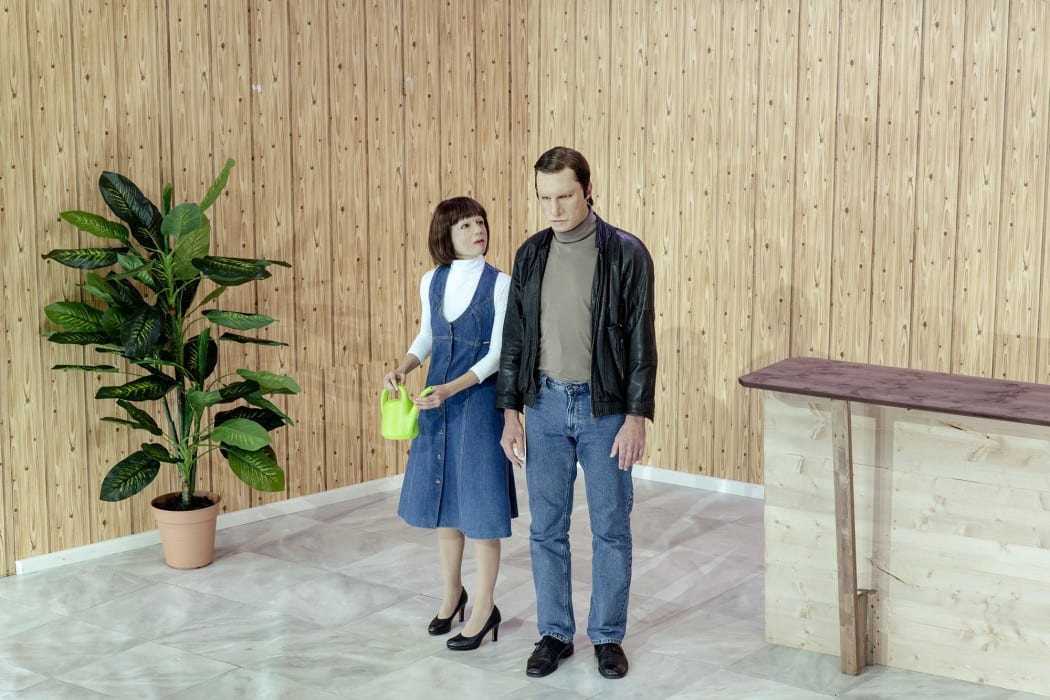Susanne Kennedy’s production resembles a sadistic human experiment – just as sadistic towards its characters as the petit bourgeois conditions which they function, rather than live in. The director uses the alienation tools she developed a year ago for her production of “Fegefeuer in Ingolstadt” and radicalizes them further. Once again, the actors move in sync to recorded voices from offstage – but this time the voices are not their own, but those of various amateurs. As an added refraction, the actors playing the individual characters change. This becomes evident only gradually, since their faces are spackled with a congealed silicone mask and their movements are frozen and mechanic. Kennedy’s experimental laboratory soon puts paid to the notion that we are all unique individuals. This is a high level of artificiality, appropriate to the story of polite employees whose lives seemingly dissolve in adherence to roles. Mr R.’s rampage appears like a first stirring of life. Kennedy’s radical formal experiment is so logical and compelling that the spectator finds it hard to flinch from it.

